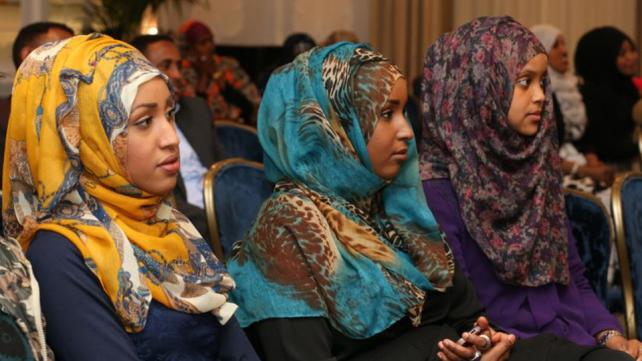
Cases of Hijab discrimination against Muslim girls and women in Canada and the United States are not uncommon.
However, there are measures sisters can take in both countries to fight against such intolerance.
Below are some suggestions based on interviews with Muslim civil rights experts.
Tips for discrimination in the United States
There are three main areas where discrimination tends to take place against sisters who wear Hijab: in employment, public facilities and education.
In employment
Title VII of the 1964 Civil Rights Act guarantees the right of employees to wear Hijab in the workplace.
It is very important for sisters to remember that the employee has to inform the employer either at the beginning of the job, during the job interview or once they've been questioned about the Hijab that they wear the Hijab for religious reasons.
It is preferable that this be done in writing.
If your employer is not allowing you to wear Hijab:
1. Inform your employer in writing that you wear Hijab for religious reasons. If s/he still denies you the right to wear your Hijab, write a letter to him/her explaining that this is a violation of your civil rights.
2. If this has no affect on the employer, see if there is a body within the company that can handle this complaint. Most larger companies have an Employment Opportunities Office (EEO) or a Human Resources department where a complaint can be filed.
3. If nothing happens in this regard, file a complaint with the Equal Employment Opportunity Commission (EEOC) in writing. They will conduct an interview with you about your complaint.
NOTE: in most cases you have the legal right to wear Hijab on the job. The only exception would be if the Hijab becomes a health or safety issue.
In public facilities
If you are called names by strangers at a public facility like in the mall or on the street, there is not very much you can do.
If you go to a restaurant and you are treated differently by an employee, or you are thrown out of a store because of your Hijab, this is religious discrimination.
If you are kicked out of a store, verbally approach the manager of the store.If this does not resolve the issue, write a letter to the store's corporate or legal office. You can complain and ask for an apology.
This can even reach the level of a lawsuit if you suffered injury. This is covered under Title II of the Civil Rights Act which covers discrimination in public places.
Physical harassment
If someone pulls off your Hijab or threatens to physically harm you because of your Hijab anywhere, you can file a criminal assault charge with local police. However, you would have to be able to identify, by appearance, the perpetrator.
In many states, you can go into small claims court by filing a civil assault charge if this happens.In some states, this would be considered a hate crime, for which there are more severe punishments.
In school
If a professor makes offensive or derogatory statements about your Hijab, you can:
1. File a complaint with the principal.
2. If that doesn't work, file a complaint with the local school board.
3. You can file a lawsuit.
Tips for discrimination in Canada
1. In general, under the Canadian Charter of Rights and Freedoms, as well as under various human rights protections at provincial levels, Muslim women and men have been guaranteed full religious freedom.
2. If you have been discriminated against, the first step is to deal with the perpetrator directly, whether this person is an employer, store employee, etc. However, this is not necessary if you feel that the perpetrator is a danger to your safety.
3. If the discrimination has been at the hands of an employer, most workplaces have an internal body dealing with complaints of discrimination. You should approach this body. As well, at this stage, you can approach a Muslim organization like CAIR-Canada to help you deal with this incident of discrimination.
“I would say the vast majority of cases can be resolved by approaching either the perpetrator or someone who's their senior and involving some Muslim organization,” said Faisal Kutty, a lawyer with the Canadian Muslim Civil Liberties Association. However, if this is not the case, then the case can be taken to the human rights commission at the provincial or federal level.
To determine which level you must go to, you have to first find out under which jurisdiction the area you are dealing with falls under. For example, in Canada, education is under provincial jurisdiction, therefore, you would have to approach your province's human rights commission, not its federal equivalent.
However, if you had a complaint about something regarding the Canadian military, this falls under federal jurisdiction, therefore, you would have to approach the federal human rights commission. Kutty did warn, however, that going forward with a complaint with the commissions is a “long, protracted process” with minimal compensation. The purpose really is to receive punitive damages.
As well, if the discrimination has been at the hands of an employer who fired you because of your Hijab, the commission will not generally force the employer to allow you back into that job.
If you are not satisfied with the commission's ruling, you can appeal to a provincial level court.
Photo Attribution: http://commons.wikimedia.org/wiki/File:Somwomldn.jpg








Add new comment